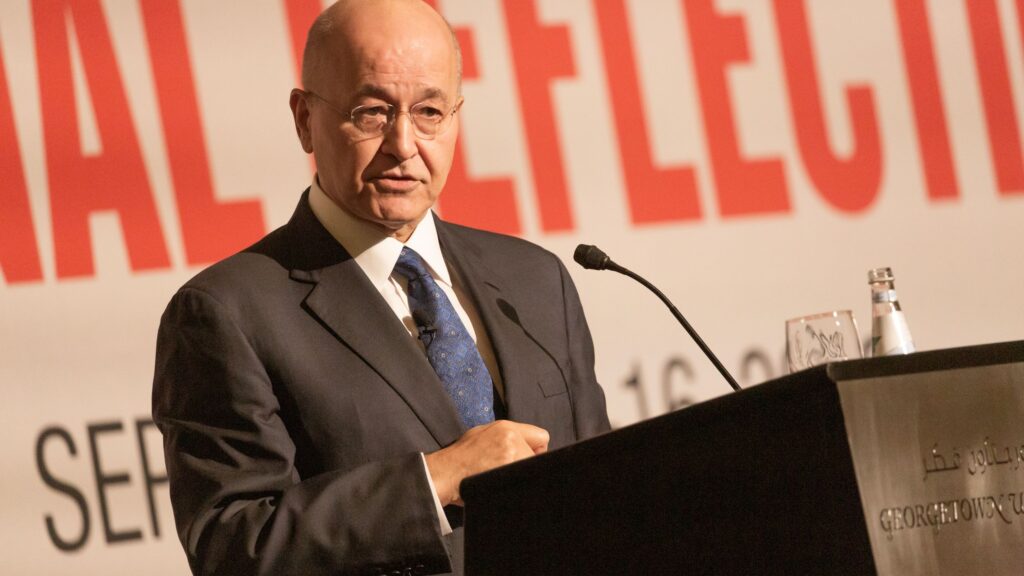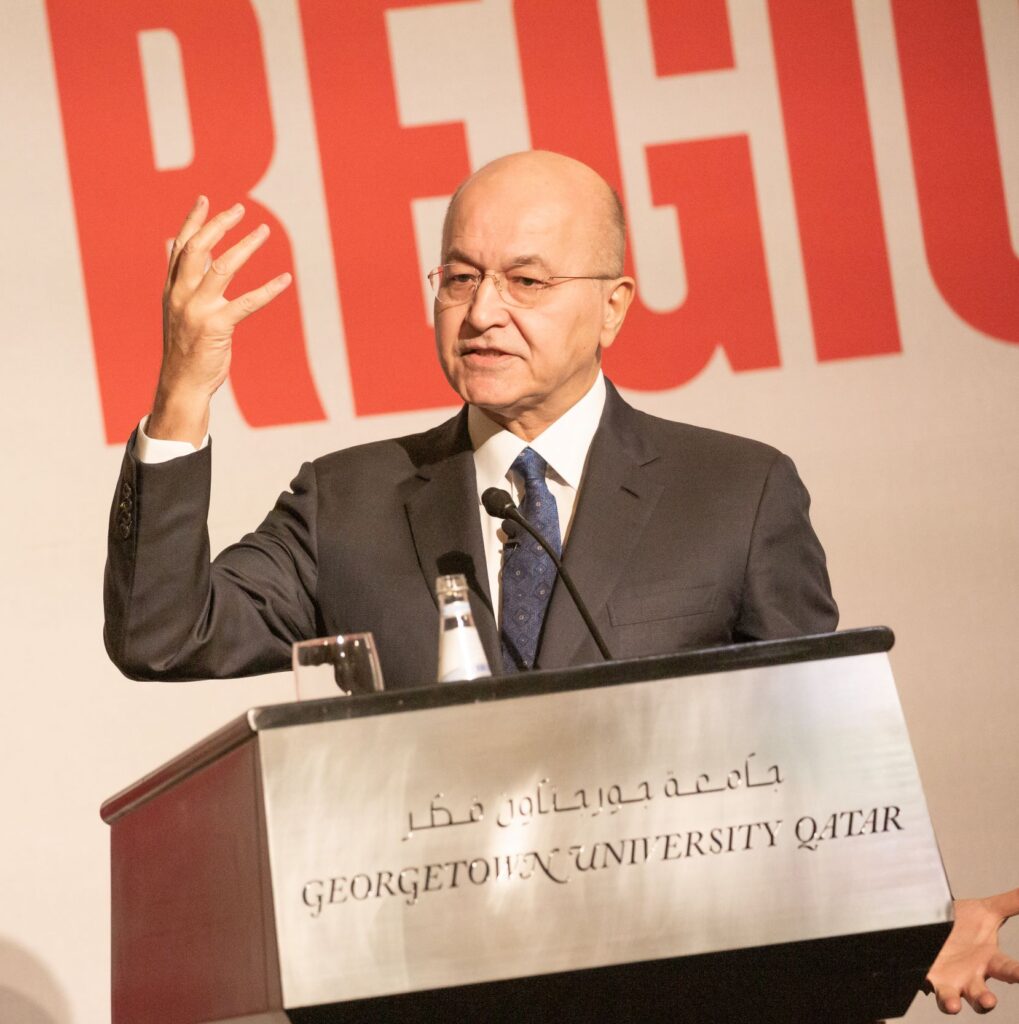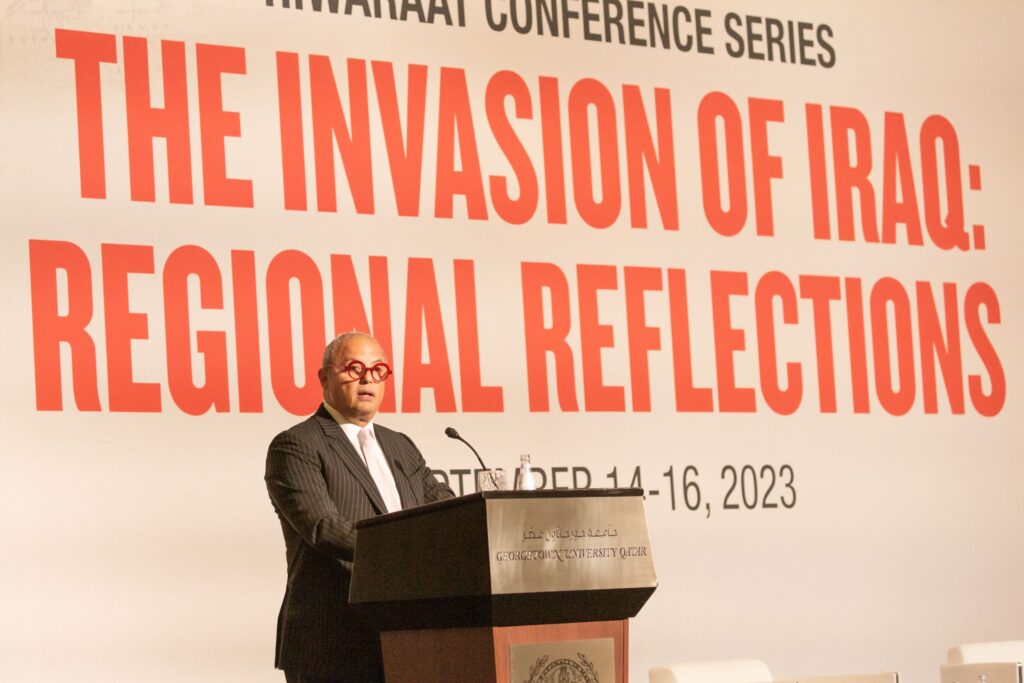Opening of Pivotal Conference to Foster Dialogue and Reflection on the Iraq Invasion After 20 Years

Georgetown University in Qatar (GU-Q) has opened its first “Hiwaraat” conference, striving to amplify new knowledge and a deeper understanding of the enduring impacts of the 2003 Iraq invasion while charting possible future pathways for the country. Among the distinguished guests at the opening session were prominent officials, ambassadors, and members of the Georgetown community.
“The Invasion of Iraq: Regional Reflections” Conference marks the 20-year anniversary by turning the focus to collaborative solutions for the conflict’s profound social, economic, and environmental repercussions at the domestic, regional, and international levels. Bringing together influential voices from Iraq and the region, international scholars, journalists, and the public, the conference is convened by Dr. Safwan Masri, the Dean of GU-Q, in collaboration with the Center for International and Regional Studies (CIRS) at GU-Q.
In his keynote address, former president of the Republic of Iraq, H.E. Dr. Barham Salih, said: “For sure war is never a good option, and for many Iraqis who fought relentlessly for decades to bring down the dictatorial regime, the removal of the regime by outside powers, was definitely not a good or a preferred option. But it was a moment of salvation for many Iraqis from that brutal dictatorship and the long nightmare of tyranny. This is a fundamental fact that should not be overlooked. With dictatorship gone, Iraq had a chance to heal its wounds and forge a new path based on coexistence and security. However, I have to admit and acknowledge painfully that those expectations and hopes have not been fully realized. The transition has been anything but easy or smooth. The legacy inherited was far more difficult than anticipated.”
On the challenges facing the region, H.E. Dr. Salih said: “God has endowed us with huge resources. Instead of these being squandered on wars and conflict, we need to invest these in terms of creating markets, for Iraq’s security, and our future. We have a vital stake in making sure that there is regional integration and creating infrastructure that binds this region together.”


Delivering the conference opening remarks, Dean Masri said: “Twenty years onward, it is almost impossible to find an Iraqi town or family that has not been devastated as a result of the invasion and its ensuing occupation. Over the next two days, we will explore what the invasion meant for Iraq and for the region. We will examine the implications for global policy and for US foreign policy toward the region. We will also discuss how attitudes toward the US, in the region and beyond, may have shifted as a result.”
Highlighting the role of GU-Q’s new Hiwaraat signature series, Dean Masri noted: “Hiwaraat, the Arabic word for “dialogues,” is about bringing together scholars, practitioners, and the public for an exploration of important, relevant, and timely questions. It is about offering an inclusive, engaged space in search of innovative solutions to present and future challenges.
“Ours is not the only conversation taking place on the anniversary of the Iraq invasion, but I am convinced that it will be one of the most authentic, nuanced, and counterintuitive. Because it is connecting the global south with the global north. Because it is taking place in the world, because it is happening here, and features people from here. Our guests and experts are immersed in this region’s story and often troubled history, its hopes and aspirations, and its heartbreaks.”
Through dialogue and engagement over the next two days, conference speakers will debate critical cross-cutting themes to explore how the conflict continues to pose challenges for Iraq’s future. For the full details about the Iraq conference and GU-Q’s Hiwaraat series, please visit: https://cirs.qatar.georgetown.edu/iraq/.